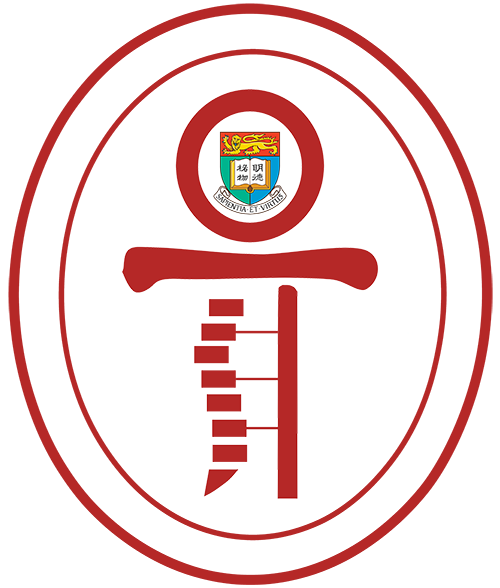Education
Post-Fellowship Orthopaedic Oncology Training Program
Orthopaedic Oncology is a subspecialty of Orthopaedic Surgery. Due to the complexity in this orthopaedic field, a formal, structured training program has not been developed in Hong Kong. Our department, one of the three tumour centres in the Hospital Authority, is committed to organizing a post-fellowship education program for those who would like to focus on the care of orthopaedic tumour patients and also to provide an environment for the development of competency in patient management.
- Introduction
- Orthopaedic Oncology
- Duration and Scope of Education
Orthopaedic Oncology is a subspecialty of Orthopaedic Surgery. An Orthopaedic Oncology Surgeon will focus on the diagnosis and treatment of patients with benign and malignant tumours of bone, soft tissue and skin in the limbs and spine areas. The management not only includes the diagnosis and treatment, but also provides rehabilitation and palliative care to the patients with these problems. An Orthopaedic Oncology surgeon is also part of the multi-disciplinary team which includes experts from radiology, pathology, medical and paediatric oncology, clinical oncology, radiotherapy and surgery.
The post-fellowship Orthopaedic Oncology Program is part of a life-long educational process. The program is a full-time, eighteen-month, in-service, clinical training course. During the training, the fellow is expected to spend at least 50% of their working hours in the field of orthopaedic tumourpatient care.
- Institutions and Program Personnel
- The program will provide a clinical environment for fellows to understand the daily practice of this subspecialty. The program director will ensure that a fellow who has completed the program can manage orthopaedic tumour patients independently.
- The program director, vice program director and program manager will be responsible for the program. The program director and the vice program director will continuously review the program and will be accountable for any questions and complaints from the fellows. The program manager will be responsible for the routine daily general administration of the program and for the maintenance of a good training environment.
- Resources
- New and follow-up patients will be available to ensure adequate clinical exposure for each fellow.
- There will be multi-disciplinary meetings including radiology rounds with radiologists, clinical pathological conferences with histologists, melanoma meetings with medical oncologists, sarcoma meetings with medical and clinical oncologists, paediatric tumour boards with paediatric oncologists, grand rounds with the rehabilitation services.
- The department has computer navigation surgery, 3D printing facilities, liquid nitrogen autograft recycling etc as part of the modern orthopaedic tumour patient care.
- Program Curriculum
- The program is a practice-based learning through daily clinical practice.
- After completion of training, fellows should be able to demonstrate their competence in taking care of orthopaedic tumour patients.
- Fellows should also be competent in performing operative procedures in the subspecialty:
- a minimum of 100 relevant operative procedures.
- complex orthopaedic tumour surgeries listed in the surgical guidelines.
- Effective interpersonal and Communication Skills
- Fellows should be able to explain the diagnosis and management plan to the orthopaedic tumour patients and their relatives. There should be no problem in obtaining a valid consent for any surgical procedure.
- Fellows should be capable of organizing the clinical conferences, clinical pathological conferences, morbidity and mortality meetings, and other relevant conferences. Fellows should present case reports and literature reviews during theseconferences.
- Fellow Duty Hours and the Working Environment
- Duty hour assignments will be same as a regular full-time employee of the Hospital Authority.
- The program director, the vice program director and the program manager will ensure, direct, and document adequate supervision of fellows.
- Evaluation
- Fellow
- The program director will be provided with continuous assessment of the fellow’s performance.
- There is a logbook system to evaluate the surgical exposure of fellows.
- Final Evaluation
- This evaluation will include an overall review of the fellow’s performance during the period of the program and professional capability to manage orthopaedic tumour patients competently and independently.
- Program
- The educational effectiveness of the program should be evaluated according to the performance of the fellows.
- The program director will improve the program through this evaluation.
- Fellow
- Fellow Recruitment and Selection
- Any orthopaedic fellow of HKCOS (Hong Kong College of Orthopaedic Surgeons) can apply for the program. If a fellow is recruited into the program, the fellow should then seek for a medical post in the Department of Orthopaedics and Traumatology at Queen Mary Hospital through the Chief of Service or the Department Head of the department.
Post-Fellowship Orthopaedic Oncology Training Program: Surgical Guidelines
Fellows must competently perform surgical procedures related to benign and malignant bone and soft tissue tumours, metastatic bone problems, skin tumours of the limbs and the complex reconstruction in these patients, including a minimum of 100 relevant surgical procedures. These procedures should also include:
- at least 39 wide resections of bone tumour or soft tissue tumour or skin tumour and one giant cell tumour of bone with curettage treatment.
- at least one computer navigation planning and one 3D cutting guide planning.
- at least five modular megaprostheses, one custom prosthesis, one recycling autograft or massive allograft.
- at least one young paediatric osteosarcoma around knee with expected limb length discrepancy in future.
- at least five flaps, and two mesh reconstructions of tendon or capsule or soft tissue defect in pelvis.
- at least one sentinel lymph node biopsy or groin dissection.
- at least one hip disarticulation or hindquarter amputation.
- at least two 2 hip surgeries excluding hip disarticulation.
- at least four thigh surgeries, four knee surgeries, two leg surgeries, two foot or ankle surgeries excluding toes, two shoulder surgeries, two arm surgeries, one hand or wrist or forearm surgery (excluding finger surgery), and one pelvis or sacrum surgery (excluding hindquarter amputation).
Program director: LAM, Ying-lee
Vice program director: HO, Kenneth
Program manager: YAU, Raymond
7th June 2022
Applications should be sent to com571@ha.org.hk. Please contact Ms Catherine Chiu for enquiries.

